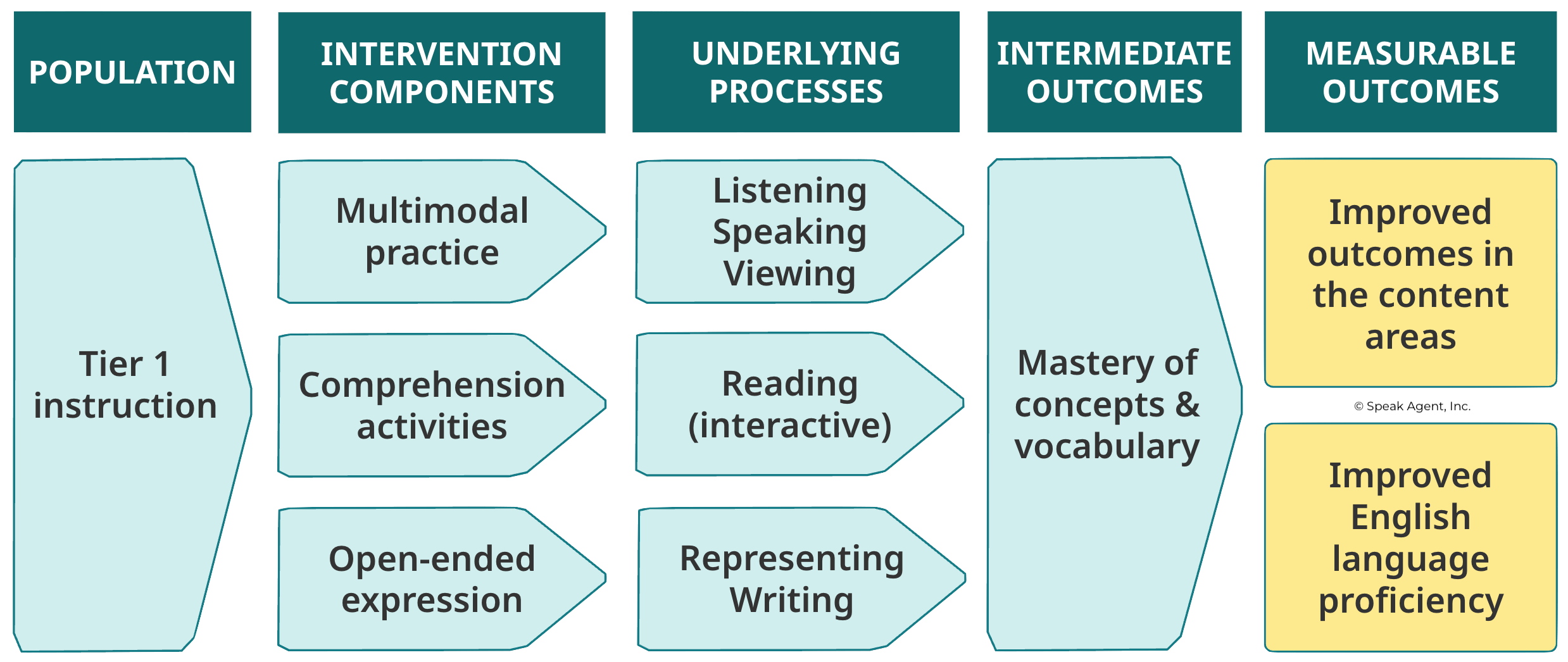Academic Language is Critical to Success
The size of a child’s academic vocabulary is likely the single most accurate predictor of achievement (Gee, 2008). In fact, 95% vocabulary coverage is the minimum needed for comprehension of classroom instruction (Laufer & Ravenhorst-Kalovski, 2010). Laufer & Ravenhorst-Kalovski also found that 64% of the variance in text comprehension scores among students (N=745) was accounted for by content-specific word knowledge. Thus, success in accessing academic content, participating in class discourse, and acquiring key academic concepts requires knowing virtually all of the related vocabulary.
Academic vocabulary, however, is not enough. “Academic language” is a broader idea that includes all the language domains of listening, speaking, reading, writing, and negotiating meaning with teachers and peers. It is this broader language context, connected to the classroom curriculum, that makes academic content meaningful, enables students to access complex concepts, and help them to communicate and demonstrate knowledge.
Theory of Change
A “theory of change” describes the process through which an educational intervention is expected to lead to the desired learning outcomes. Below we share the theory of change and underlying evidence basis of Speak Agent’s academic language learning model.

Students acquire academic language through three intervention components and underlying processes, as shown in the diagram above:
- Multimodal exposures: Students develop familiarity with new words and concepts through repeated multimodal (aural, textual, verbal, and visual) exposures. Rapid and repeated practice is needed to achieve the required number of exposures noted above (Schmitt, 2008; Peregoy & Boyle, 2013).
- Integrated practice: Students engage in dialogic reading, cloze activities, word and syntax games, and other types of independent, guided, and collaborative language practice to develop comprehension in varied contexts. This variety of contexts and modes is helpful for understanding nuanced meanings and fluency with academic texts. (Bravo et al, 2007; Graves, 2009; Nisbet & Austin, 2013; Peregoy & Boyle, 2013).
- Applying in varied contexts: The progression culminates with multimodal composition projects involving writing, editing, speaking, and other learning tasks to create “comprehensible output,” which Swain (2005) theorizes deepens linguistic knowledge and assists learners in conveying meaning. This builds broader academic language comprehension, including syntax and fluency with usage.
These three underlying processes of multimodal exposure, contextual comprehension, and academic language usage largely occur in a progression adapted from Bravo et al’s model (2007) of no control to passive control to active control. This simple three-stage model masks tremendous complexity. Each stage is an iterative process requiring many word exposures in multiple learning modes. Students can progress at different paces using personalized learning tools. Teachers can also differentiate instruction. Each learning mode is interwoven into Speak Agent digital lessons to move students through the learning progression. The greatest challenge is delivering learning that succeeds in progressing to the next stage. The final stage of “active control” can be equated with academic concept mastery.
Evidence for Intermediate and Education Outcomes
The two key intermediate outcomes are mastery of key academic concepts and related vocabulary, and comprehension of academic texts and classroom discourse. There is evidence that the ALL model will lead to these intermediate outcomes and that these, in turn, will impact education outcomes.
- Speak Agent has been found to significantly impact acquisition of elementary science concepts and vocabulary by an NSF-sponsored study (Li, 2018). Li’s research supports the idea that both struggling and advanced learners can use Speak Agent’s academic language learning model to navigate a successful learning path. This finding was corroborated by a second study phase and other research, which showed a high impact with reading and general academic language as well.
- Research by Laufer & Ravenhorst-Kalovski (2010), Arya et al (2011), and Proctor et al (2005) strongly suggests that academic language and concept mastery is a key malleable factor capable of influencing results with comprehension of academic texts and classroom discourse.
- The ability to comprehend texts and discourse, in turn, have a well-established relationship with student education outcomes. For example, Cromley (2009) found a strong correlation (.82) between international reading and science PISA scores across three years of data. In math, Boonen, de Koning, Jolles, & van der Schoot (2016) found a significant correlation (.59) between reading comprehension and students’ ability to solve math problems. Sammons (2018) also notes that when students develop a robust math vocabulary, they are able to not only more effectively comprehend complex math problems but also to reason and communicate mathematically. Initial evidence: LEANLAB Education tested Speak Agent in a small-scale study at KIPP Kansas City in October-December 2019 and found evidence of promise with marked improvements on standards-based reading assessment scores.
Please see our References page for a full A to Z listing of all research cited on speakagent.com.

